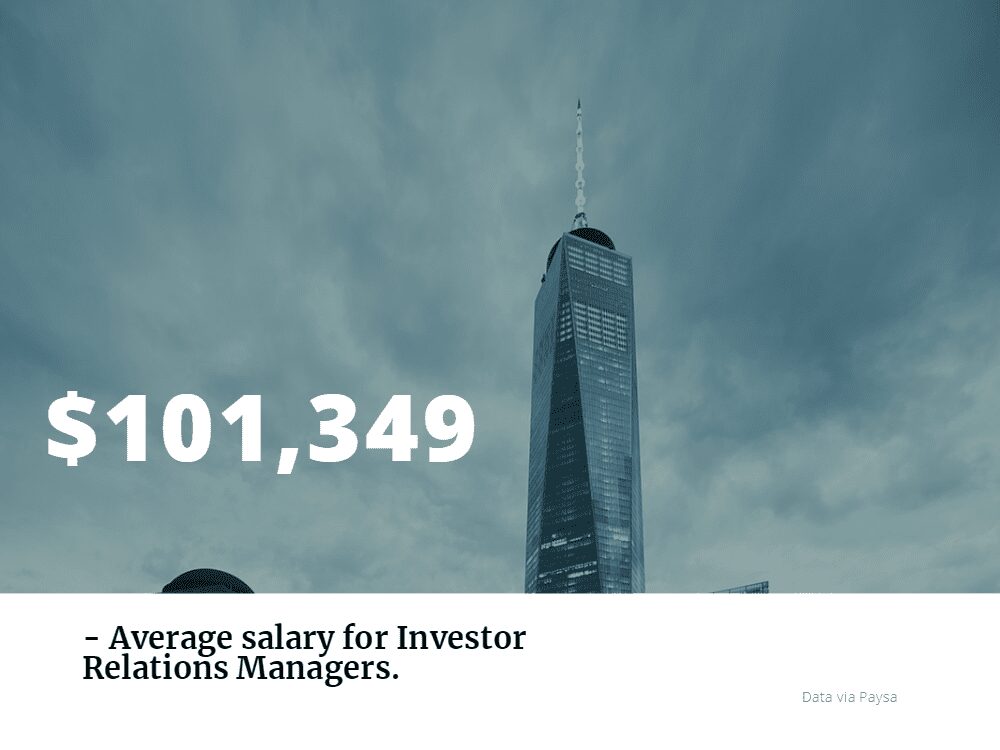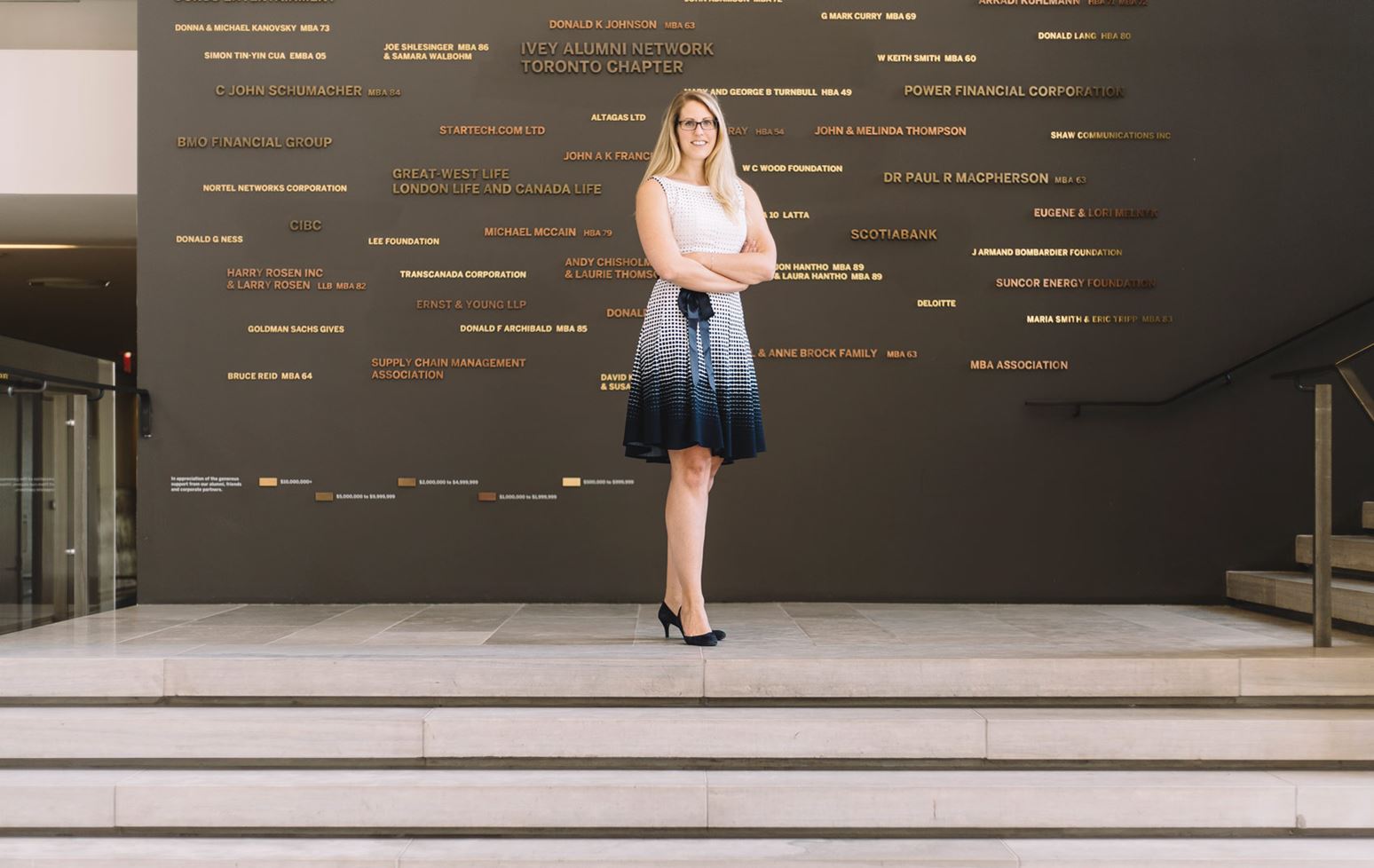The 5 Best DC Part-Time MBA Programs

The necessity of continuing to work while pursuing an MBA is a reality for many students. Part-time programs, built to fit into work and family schedules, are an increasingly sought after format for the MBA. The DMV metro area is home to some of the top part-time MBAs in the country. Here is a look at five of the best Washington DC part-time MBA programs.

Virginia Tech’s Pamplin School of Business’ evening part-time program recently jumped three places to 14th in U.S. News and World Report‘s rankings. Also ranked as the top public university part-time degree, the evening program at Pamplin begins in spring or fall, and can take anywhere from two-to-five years to complete, with the average student receiving an MBA in 3.5 years.
Part-time students at Pamplin can choose how many courses to take each semester, and the highly flexible format is fit for professionals who may be searching for a way to shift in their current career. According to Dean Robert Sumichrast, part of what makes Pamplin a leader in part-time education is its awareness of the needs of the working professional. “What we did at Virginia Tech a few years ago was to say that we really want to focus on the working [student]—someone who wants to enhance their career or make a change in the direction of their career … We want [professionals] to use what they’ve learned as part of the experience of the MBA program.”

Johns Hopkins’ Carey School of Business’ Flexible MBA also has the success of the working student at its forefront. With a degree “proven to get six-figure results” Carey’s flex MBA is online, in-person, or in a blended format. The program’s average length is 2.7 years and is comprised of 54 credits. With concentrations in Healthcare Management, Leading Organizations, and Marketing, the online courses are offered in eight-week terms. The in person delivery method, also comprised of eight-week terms, offers the additional concentrations of entrepreneurship, financial businesses, interdisciplinary business, and real estate and infrastructure.
While graduates of the Carey Flex MBA program succeed in a wide variety of industries, recent data shows that 67 percent of students landed in consulting positions, and 33 percent took roles in healthcare.

The University of Maryland’s Smith School of Business, allowed one part-time MBA student, Marie-Anne Audige, ’17, to realize that she was “much more resilient than I thought I was … Smith allowed me to take a leap of faith to start my business.” With classes available at three different campuses (Shady Grove, Downtown D.C. and Baltimore), Smith’s part-time MBA is one of the “most versatile MBA programs in the Washington D.C. region.”
With several different options available—24 months, 28 months, or a flexible, self-paced duration—Smith’s degree meets the professional in the middle between their education and career. Smith offers frequent info sessions, both in person and online, for those who wish to learn more about the flex programs in person. Classes are offered throughout the year in four terms.

Loyola University’s Sellinger School of Business also ranked among U.S. News and World Report’s top part-time MBA programs. Sellinger Professional MBAs may complete the program’s 33-42 credits at a self created pace, in as many as six years or as few as two and a half. Encouraging “students to align personal interests and career goals” with the curriculum, Sellinger has a wide variety of specializations from which to choose; professional MBAs can major in data analytics, finance, accounting, and marketing to name just a few.

Kogod School of Business at American University offers its top-ranked part-time online degree in a 24-month course sequence (completed by most students), but it can also be completed on a 12-month, 15-month, or 18-month track. Comprised of 48 credits, there are 12 core courses, three electives, and two in-person immersions.
The Kogod MBA is pointed squarely at helping businesses to grow, as stated on the program’s site. “The online MBA program prepares students to apply leadership and financial analysis skills to help businesses operate more effectively”. Students can choose from six concentrations or can customize their degree to their specific career goals. Concentrations include Business Analytics, Finance, International Business, Cybersecurity and Marketing.
MBA Jobs: Investor Relations Manager

Between roles in data analytics and public relations, the position of Investor Relations Manager is essential.
Investor Relations Managers are responsible for managing communication between a company’s corporate side and its investors. Due to the increased demands of the Sarbanes-Oxley Act of 2002, major companies, such as Amazon and Microsoft, are hiring people for these positions to help meet their financial reporting demands.
What is an Investor Relations Manager?
An Investor Relations Manager serves as an intermediary between the public and the company’s senior management. The manager provides the public and company stakeholders with both quantitative and qualitative data, ranging from annual reports to a company’s strategic direction. It also provides management with information from stakeholders and helps deal with crises.
This position has many responsibilities varying from firm to firm. However, the following duties are among the most consistent:
- Data analysis
- Data visualization
- Financial modeling
- Information collection and preparation
- Interacting with the financial department
Investor Relations Manager Salaries
According to Paysa, the average pay for an Investor Relations Manager is $101,349. Salaries range from $88,443 to $112,501. Top earners can make over $125,000.

Career experience plays a significant role in how much one can make. According to Payscale, salaries for mid-career professionals is typically 11 percent higher than average. However, those with no experience make 24 percent less than the average.
Where Do You Start?
Investor Relations Manager candidates usually possess a bachelor’s degree in finance, accounting, communications, or economics. Businesses generally require candidates to have years of experience in investor relations, public relations, financial investment, accounting, and legal contracts
Ideal candidates for this position need excellent quantitative data analysis and interpersonal skills. Those who can build relationships and make complicated data easily digestible will excel in this position.
One way to gain these skills is to get a MBA from a top-notch program. The following business schools offer the skills necessary to excel as an Investment Relations Manager:
Northwestern University – Kellogg School of Management
Northwestern University’s top-ranked Kellogg School of Management helps students develop both their management and data analysis skills. Here, students will have the ability to expand upon their interpersonal skills and develop relationships with other businesses. These elements are typically critical to their future career.
Johns Hopkins – Carey School of Business
Johns Hopkins’ Carey School of Business offers future investment relations managers a Master of Arts in communication/MBA dual-degree program. Designed for managers in investment relations, media relations, and risk communication, students will be prepared for a career in business and communication.
New York University – Stern School of Business
Located in the heart of global finance, NYU’s Stern School of Business provides students with a program that focuses on management communication. The school’s MBA program covers a wide variety of communication forms and prepares future leaders to find and keep a seat at the table.
Schulich Professor Honored, and More – Toronto News

This week has seen strides for Toronto’s business schools, so lets take a look at some of the highlights.
Serving the Public Good – Corporate Knights
Ed Waitzer, professor at the Osgoode Hall Law School and York University’s Schulich School of Business in Toronto, is the newest recipient if the Corporate Knights Award of Distinction.
In addition to teaching corporate law at York University’s Schulich School of Business, Waitzer is on the advisory board of the Pontificia Universidad Católica de Chile’s corporate governance centre, and frequent lecturer at various universities. At 64, Waitzer remains active and continues to challenge his students and peers to question “compliance mentality,” and decipher what it means to do the right thing in any given situation.
“Ed has spent much of his life advancing the legal foundations for corporations and pension funds to better serve the public good. He’s brought a high level of credibility to interpreting a complex body of law in ways that expand the concept of fiduciary responsibility and allow business leaders to use their power to better serve the interests of a wide range of stakeholders. He makes it less possible for a corporate or pension board to shut down, say, discussions about blackballing child labour or coal because, ‘We have a fiduciary duty to our shareholders.’” -Toby Heaps, Corporate Knights CEO and Publisher.
Learn more about Waitzer’s life and career here.
Ivey MBA Association Welcomes New President – News@Ivey
Western University Canada’s Ivey Business School’s MBA association has elected Marika Marty as its president. Marty was elected by the MBA class of 2019 and will be the first president the association has seen in over 15 years. As president, Marty will represent the student body and facility unity in her class.

Marika Marty, ’19 MBA / Photo via ivey.uwo.ca
The new MBAA said that initially she put off even applying for her MBA for years, thinking that she would have to choose between a career and a family. However, she soon realized this thinking was flawed and chose to challenge herself. “As women, sometimes we sell ourselves short. Being able to embrace opportunity is the real challenge,” Marty said.
Read more about Ivey MBAA’s new president here.
The Debate In Canada Over Paying Plasma Donors – Policy Options Politics
In a recent article in Policy Options Politics, the need for plasma and the choices facing policy-makers has come to a face.
The paper—co-written by Nicola Lacetera, associate professor at the University of Toronto’s Rotman School of Management, and Mario Macis, associate professor at Johns Hopkins University’s Carey Business School—notes that over 80 percent of plasma used to treat patients in Canada is brought in from the U.S. Both the US and Germany can provide a significant amount of plasma, as their laws allow for the creation of private collection establishments as well as compensating donors for the time commitment and discomfort that accompanies donation, but the majority of Canadian provinces prohibit the payment of donors and establishing for-profit collection centers.
In the exploration of the issue, Lacetera and Macis cite the problems with paying plasma donors as well as the benefits (greater incentive to donate, thus less reliance on foreign imports). For example, paying donors could lead to an increase in tainted donations from people who are not healthy, and are just trying to earn money quickly.
Read more about options for increasing domestic plasma donation in Canada here.
How Affordable are Baltimore MBA Programs Compared to DC?

A few years ago, the Baltimore Sun published a hilarious list outlining 100 reasons why Baltimore is a better city than Washington DC. Here are some of our favorite reasons:
- We don’t start conversations by asking, “What do you do?” or “Who do you work for.”
- It never takes us 45 minutes to go six miles.
- Our traffic doesn’t lead to clinical depression.
- D.C.’s happy hour is regular price to us.
- Our signature food is crab cakes and pit beef. D.C. has … yeah.
- We weren’t built on a swamp.
- Cal Ripken is 2,632 times better than any D.C. sports figure.
- The NATIONAL Aquarium: Not in the nation’s capital.
Yes, some of these reasons are very tongue-in-cheek, and the list aimed to be light-hearted and irreverent. But if you’re a prospective MBA in the DMV, there are some clear advantages to picking a business school in the Baltimore metro over the Washington DC metro, namely the affordability of programs.
Let’s take a deeper dive and see just how affordable Baltimore MBA Programs are compared to their DC counterparts.
Which MBAs Can You Earn in Baltimore and DC?
Both Baltimore and Washington DC are home to some of the country’s most prestigious business schools and MBA programs. Programs offered in the Baltimore metro include:
- Perdue School of Business – Salisbury University
- Carey Business School – Johns Hopkins University
- Sellinger School of Business – Loyola University Maryland
- University of Baltimore – Merrick School of Business
- University of Maryland R.H. Smith School of Business
Meanwhile, MBA programs offered in the Washington DC Metro include:
- George Mason University School of Business
- George Washington University School of Business
- Howard University School of Business
- Kogod School of Business – American University
- McDonough School of Business – Georgetown University
How Affordable are Baltimore’s Programs Compared to DC’s?
Yes, both metros boast and impressive programs that are sure to provide prospective MBAs with a high-quality business educations, but which city offers the more affordable options?
Here is the average cost per credit hour at business schools in Baltimore.
- Carey Business School Global MBA: $2,174 per credit hour
- Perdue School of Business Full-Time MBA: $392 per credit hour (in-state students), $703 per credit hour (out-of-state students)
- Sellinger School of Business Full-Time MBA: $1,238 per credit hour
- Merrick School of Business Flexible MBA: $824 per credit hour (in-state students), $1,149 per credit (out-of-state students)
- R.H. Smith School of Business Full-Time MBA: $1,658 per credit hour (in-state students), $1,998 per credit (out-of-state students)
Let’s compare these tuitions rates to the MBA offerings in the Washington DC area:
- George Mason University School of Business Full-Time MBA: $950 per credit hour (residents of Virginia, Maryland, and Washington DC), $1,751.50 per credit hour (out-of-state and international students)
- George Washington University School of Business Global MBA: $1,837 per credit hour
- Howard University School of Business Full-Time MBA: $1,259 per credit hour
- Kogod School of Business Full-Time MBA: $1,642 per credit hour
- McDonough School of Business Full-Time MBA: $1,880 per credit hour
When looking at tuition costs, Baltimore takes the cake. Even though Baltimore boasts the most expensive full-time program (Carey Business School Global MBA), the average cost per credit hour for both in-state and out-of-state students is about 16 percent lower in Charm City.
Washington DC vs. Baltimore MBA Cost
| Baltimore | Washington DC | |
|---|---|---|
| In-State Cost (per credit hour) | $1,257.20 | $1,513.60 |
| Out-of-State Cost (per credit hour) | $1,452.40 | $1,673.90 |
Additional Costs To Consider
Aside from tuition, business students living in the Baltimore area have a lower cost of living then their Washington DC counterparts. According to Numbeo, you would need around $4,541 in Baltimore to maintain the same standard of life that you can have with $6,100 in Washington DC, assuming you rent in both cities. This calculation uses the website’s Cost of Living Plus Rent Index to compare cost of living.
Here’s a closer look at how Numbeo creates its Cost of Living Indexes, and a breakdown of a few key stats to look at when comparing Baltimore to Washington DC:
- Consumer Prices in Baltimore, MD are 14.78 percent lower than in Washington DC
- Rent Prices in Baltimore, MD are 39.97 percent lower than in Washington DC
- Groceries Prices in Baltimore, MD are 15.70 percent lower than in Washington DC
- Local Purchasing Power in Baltimore, MD is 10.21 percent lower than in Washington DC
The case for Washington DC
So Baltimore’s MBA offerings are, on average, more affordable than Washington DCs. But what if money isn’t an issue, or you happen to get into a program in DC? Here are a few ways that the Capital City has the Monument CIty beat, according to Thrillist:
- Culinary Scene: DC is experience a craft beer renaissance with four breweries opening in recent years: DC Brau, 3 Stars Brewing, Chocolate City, and Bluejacket (soon). Meanwhile, notable restaurants such as minibar (Andres), Le Diplomate (Starr), Kapnos (Isabella), Range (Voltaggio), and Casa Luca (Trabocchi) have also opened. Baltimore isn’t really known as much of a foodie town.
- Public Transit: The Metro is one of the most efficient, most convenient, and cleanest public rail lines in the country. Baltimore’s metro runs East to West only, and doesn’t link up with either of the two other rail systems.
Oh, and remember that Baltimore Sun article we reference at the top of the page? Enjoy DC Inno’s slightly more punchy response.
Temple, Carnegie Mellon Top U.S. News 2018 Online MBA Rankings

The annual U.S. News & World Report 2018 Online MBA rankings are officially in, with the Fox School of Business at Temple University, once again, taking the top honors.
What are the Best Marketing MBA Programs in Baltimore?

The Baltimore metro is home to over 2.7 million people, making it the 20th largest metropolitan area in the United States and the economic center of the state of Maryland. Best known for its top colleges and universities, hospitals, sports, and professional and financial services, Baltimore is also a popular meeting and convention destination, according to Visit Baltimore. Continue reading…
